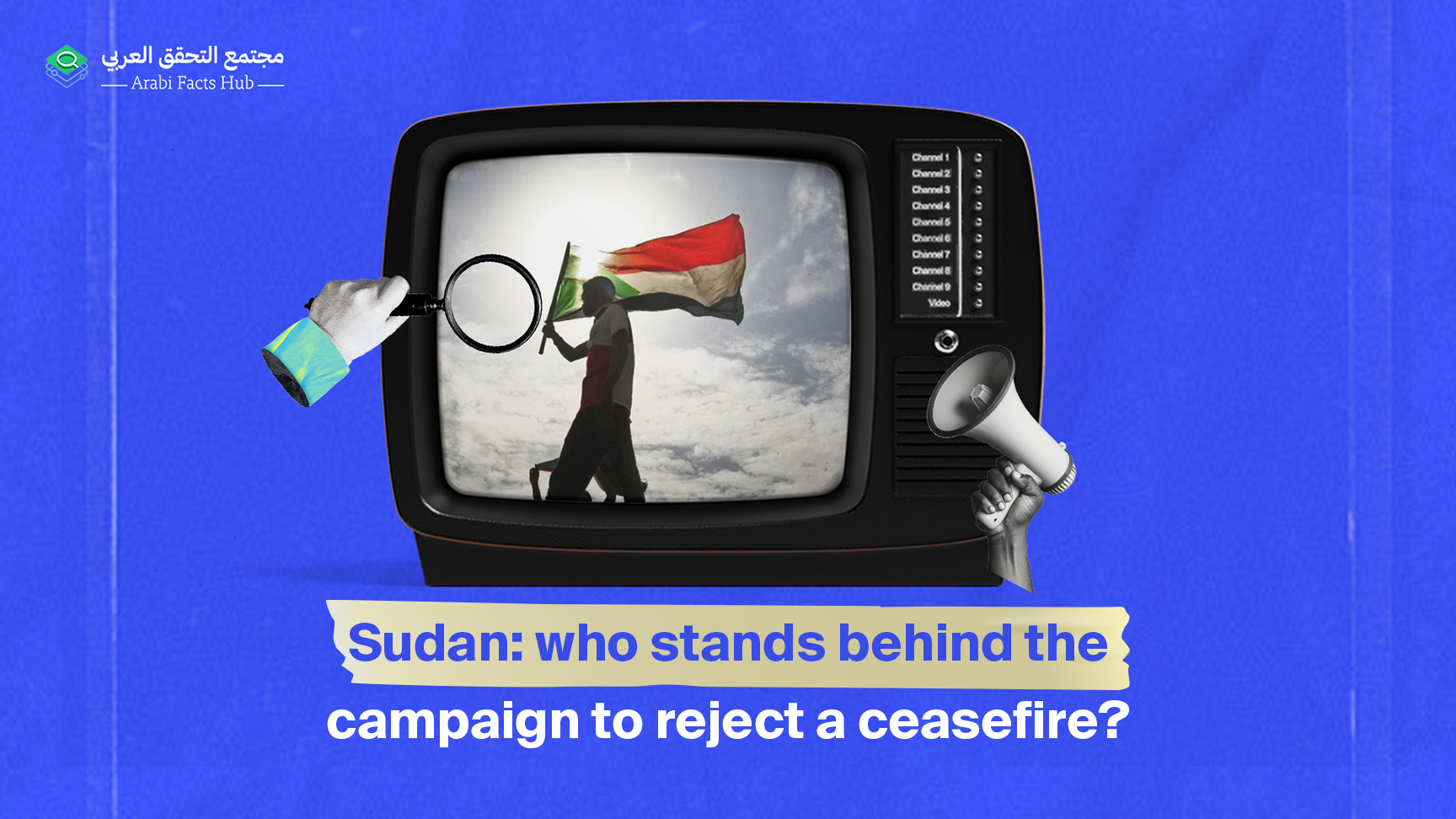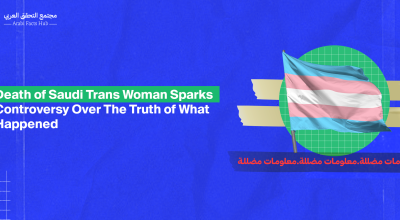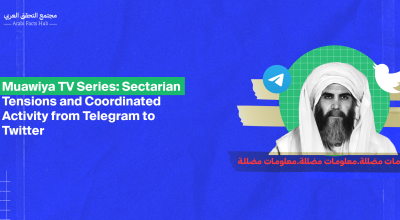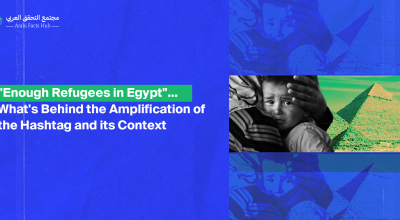Sudan: who stands behind the campaign to reject a ceasefire?

This is part of a series of investigative reports published in collaboration with Daraj media
Arabi Facts Hub 19.07.2023
An online campaign, spearheaded by proponents of the Sudanese army, has leveled accusations of treason against the advocates of ceasefire. This accusation hinges on attributing violations to the opposing party. However, human rights reports have also documented transgressions involving the Sudanese armed forces.
____________________________________________________________________________________
Since the outbreak of armed conflict between the Sudanese army and the Rapid Support Forces (RSF) in mid-April, attempts to enforce the agreed upon ceasefires have repeatedly failed, resulting in over two thousand deaths and thousands of injuries.
While Sudanese, both inside and outside the country, called for a ceasefire, there was an online counterpart advocating the continuation of fighting, and seeking to amplify each party’s claims and grievances.
An online campaign, spearheaded by proponents of the Sudanese army, has leveled accusations of treason against the advocates of ceasefire. This accusation hinges on attributing violations to the opposing party. However, human rights reports have also documented transgressions involving the Sudanese armed forces.
What happened?
The emergence of the hashtag #Ceasefire_is_Treason began with the events surrounding the clashes between Israel and Palestinian factions in Gaza in May 2021, and the subsequent ceasefire between the Arab Coalition and the Houthis in Yemen 2022. Twitter users expressed their rejection of the ceasefire, whether with Israel or the Kingdom of Saudi Arabia, the leader of the Arab Coalition.
.jpg)
At that time, tweets using the hashtag were limited. It gained significant traction only with the war in Sudan, especially towards the end of June. During the same period, other hashtags became active, such as #No_to_Ceasefire and #No_to_Ceasefires.
The activity of these hashtags was connected to calls for demonstrations of "Friday of Rage" on June 23, during which Sudanese protestors took to the streets of Khartoum and other cities.
The calls for protests expressed support for the Sudanese army and criticized the Forces for Freedom and Change (FFC), which had led the protests against Omar al-Bashir's regime.
Meanwhile, Sudanese tweeps blamed the "Kizan" or remnants of the previous regime, for calling protests amid the ongoing conflicts.
.jpg)
.jpg)
The Most Effective
Accounts that were previously involved in online campaigns participated in this campaign. These accounts feature profile pictures with slogans that are supportive for the Sudanese army.
An analysis of 1792 tweets employing the hashtag #Ceasefire_is_Treason, utilizing the Netlytic tool, shows that it was utilized by a minimum of 825 accounts. Similarly, examining another sample of 2027 tweets featuring the hashtag #No_To_Ceasefire indicates the participation of at least 1125 accounts in the campaign.
According to the illustrative analytical diagram below from Gephi, the most active accounts on the hashtags #Ceasefire_is_Treason and #No_To_Ceasefire include @khabir30, @saramubael, @moneershareef, @zainab_wad, @amnaalhuss20400, @ahmed002244, AbasharElhassan, and @sami1rx.
.jpg)
Interactions on the hashtag #No_to_Ceasefire and the prominent accounts using it- Gephi
At first glance, the interactions of the most active accounts on both hashtags suggest two distinct networks working to amplify them. However, on the sidelines, the account of Abbas Mohammed, @abbasmo77873890, appeared, participating in both hashtags.
.jpg)
.jpg)
On Facebook, there were 897 posts with the hashtag #Ceasefire_is_Treason since the outbreak of fighting in Sudan, resulting in a total of 365,542 interactions. The hashtag #No_To_Ceasefire was used in 229 posts, amounting to 9,744 interactions, according to Crowdtangle.
It's worth noting that these statistics only encompass what is shared in groups, pages, and verified accounts, as the tool does not examine the content posted by regular user accounts.
.jpg)
A screenshot of the posts using the hashtag #No_to_Ceasefire - Crowdtangle tool.
What are the mechanisms for amplifying hashtags?
Accounts and pages of the campaign against the ceasefire relied on Facebook groups to increase the spread of hashtags. The number of group members exceeded 100, and supporters of the Sudanese army attempted to leverage these numbers to draw attention and encourage participation in the blogging wave.
Some of these groups use the names of political and military entities, although they are not officially affiliated with them. Examples include "Forces for Freedom and Change," "Sudanese Armed Forces," "Irregular Army," and "Support for the Sudanese Army."
Ta-Seti, a page with with 319,000 followers, also contributed to spreading the hashtag #Ceasefire_is_Treason. It was one of the most active participants in the campaign. Its owner relies on live audio broadcasts, video clips, and images, to boost interactions. The page adopts a rhetoric supportive of the army.
.jpg)
Facebook's transparency feature indicates that the page was established in May 2021 under the name Desouki Al-Shaykh, and later transformed into “aldisugi mahguob”, before changing its name again to "Ta-Seti" in February 2023.
.jpg)
The page owner provides conflicting information about their location, with different accounts on social networks indicating different places. On Facebook, it appears that the page is managed from Sweden and two other unknown locations. The data on the YouTube channel suggests it is based in Qatar, and the Twitter account states that the owner lives in the United States. The account owner used the same cartoon images below as a profile picture for their Facebook page (Ta-Seti) before changing it to a picture of the army martyr, famous on TikTok, Osman Makawi.
.jpg)
.jpg)
Additionally, there are two personal accounts on Facebook, some of which display logos supporting the Sudanese army, urging followers to create Twitter accounts with the message "copy and paste (the hashtags) in support of the military resolution."
.jpg)
.jpg)
The interactions do not indicate the presence of prominent fake accounts used in this campaign. However, the practices of some accounts resembled the behaviors of automated accounts, such as @tarigwaksa, which routinely activated a set of hashtags together through responses or quoting tweets.
.jpg)
Who refuses a ceasefire?
The content of the hashtags rejecting a ceasefire and supporting the army focuses on criticizing opposition groups, especially the Forces of Freedom and Change, and accusing them of treason. They broadcast posts expressing inflammatory rhetoric, rejecting the ceasefire, and criticizing the news coverage by Arab media outlets, such as the Saudi channels Al Arabiya and Al Hadath. Additionally, there is the dissemination of videos, some of which are bloody, depicting the ongoing confrontations on the ground. Rumors and false news are also spread.
The interactions of accounts and pages participating in the campaign indicate a prominent sector of participants who support the Sudanese army, lean towards Kizan and criticize the FFC. This is often done using memes and satirical images.
.jpg)
.jpg)
On the side of interactions with the hashtag #No_To_Ceasefire, the account @AbasharElhassan stands out. The account owner introduces themselves as a social influencer, and mentions, in their profile, the account of the Sudan Construction Party (under establishment).
The party first emerged during Al-Bashir's reign in 2018. An article in the Sudanese newspaper "Al-Rakoba" suggests that the party is close to Kizan, and is led by the Brotherhood youth who studied abroad. However, the party presents itself as transcending ideologies and focuses on providing solutions to the problems of the Sudanese state. It is one of the parties endorsing the Declaration of Freedom and Change.
.jpg)
Concurrent with the hashtags rejecting ceasefire, other hashtags were active in attacking the FFC.
These hashtags include: #FFC_Does_Not_Represent_Me, #FFC_Destroys_Sudan, and #FFC’s_Treason, which were active on Facebook and Twitter in late June.
.jpg)
.jpg)
.jpg)
Similarly, these accounts were associated with calling for participation in protests under the slogan "Friday of Mobilization" on June 30, following their call for participation in the protests on "Friday of Anger" on the 23rd of the same month.
The National Congress Party, the former ruling party under Omar Al-Bashir's regime, was one of the prominent advocates for participation in the "Friday of Mobilization." The statement calling for the protest included hashtags that were promoted by supporters of the army and Islamists. These hashtags included #Friday_of_Mobilization, #Friday_of_Mobilization_for_the_Liberation_of_Sudan, #Sudanese_Popular_Resistance_Front, #Mobilization_for_the_Liberation_of_Sudan
.jpg)
The supporters of the Sudanese army and the National Congress Party are not the sole initiators of online campaigns. A multitude of fake pages and accounts are behind the promotional activities for the Rapid Support Forces. We previously revealed how rumors spread by accounts aligned with the Rapid Support Forces contributed to the crisis at the Meroe Air Base, falsely claiming the presence of Egyptian forces and escalating fighting since April. During the initial days of the fighting, there was an exaggeration of the impact of the Rapid Support Forces, with fake accounts pumping out hundreds of thousands of tweets and posts during this period.
In addition to the inauthentic interactions coming from fake accounts in response to what the Rapid Support Forces pages publish, some of these accounts had names in Arabic, English, Indian, and Spanish and tweeted in both Arabic and English.
In summary:
- An online campaign utilizing various hashtags to express opposition to the ceasefire or negotiations with the Rapid Support Forces.
- The campaign conveyed criticisms directed at civil forces, especially the Forces for Freedom and Change.
- The campaign's rhetoric included accusations of treason against opposition forces, accusing them of supporting the Rapid Support Forces.
- The comprehensive campaign received support from Sudanese army supporters and followers of the former regime, including the National Congress Party.
- The campaign relied on large "groups" with massive followings on Facebook to increase the spread of hashtags.
- Some influential accounts in the hashtag campaign also participated in different hashtags.
- Information about some influential Facebook pages involved in the hashtag campaign was conflicting.
Tools utilized:
– Netlytic
– Twitter Search
– Tweetdeck
– Gephi














